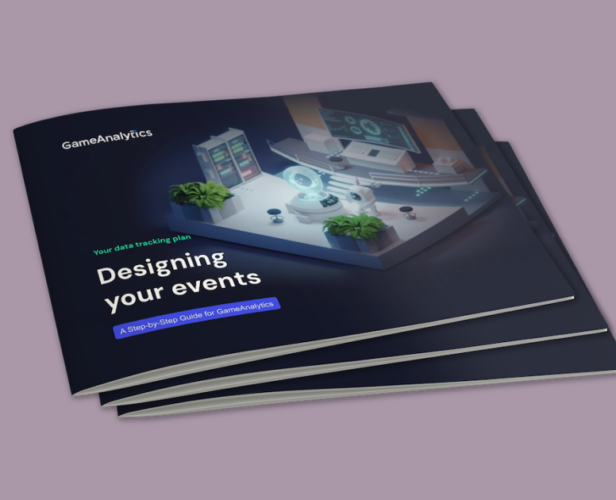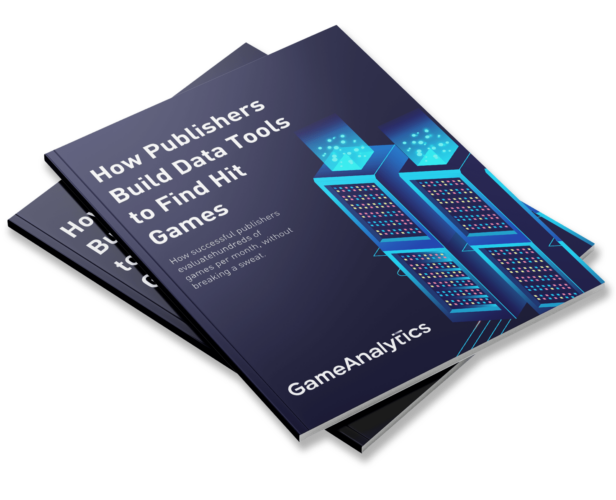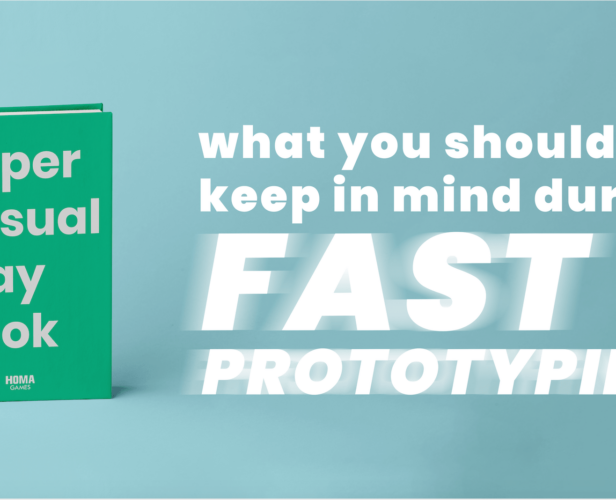Category
Guides
#Data & Analytics
22 metrics all game developers should know by heart
When it comes to game and mobile app analytics, there are hundreds of metrics numbers to track. There are metrics like downloads, sessions, or DAUs on one end of the spectrum. These numbers are relatively straightforward and measure concrete actions. More complicated metrics include user churn or Average Revenue Per Paying User (ARPPU). These are less intuitive to interpret and might raise more questions than answers. While there’s no one-size-fits-all policy for game analytics, some useful metrics can help shed light on how you can improve your mobile game. To better understand how these metrics relate to each other and provide comprehensive insights into your game’s performance, we divide them into three main categories: engagement metrics, monetization metrics, and advertising metrics. Each category focuses on different aspects of player behavior, revenue generation, and marketing effectiveness, allowing you to optimize various...
#Guides
Cybersecurity for Game Developers: Top Tips to Stay Safe
Protecting yourself isn’t necessarily hard. Not if you’re aware of the techniques hackers use. So, with data breaches becoming increasingly common in the news, we thought we’d give a little advice about how to protect yourself.
#Guides
The Game Developer’s Handbook to Mastering Data Solutions
Data is the key to success in the ever-evolving landscape of game development. Explore this guide to transform your data into insights using our turn-key data solutions. What’s inside? Our comprehensive guide explores cost-saving strategies and real-world applications for advanced use cases. Learn how to seamlessly integrate data sources, unlock detailed player insights with Player Warehouse, access real-time data with Raw Export, and ensure data privacy compliance.
#Guides
5 Steps to Building Discord Community
Building a community for your games is crucial to getting new players and keeping them loyal. And Discord is now the number one place to go. But how can you get the most out of this social media platform? Here’s our guide.
#Data & Analytics
Event Design & Tracking Guide for GameAnalytics
Learn how to create an adaptable tracking plan, enabling you to unlock richer insights and maximize the value of your data within GameAnalytics.
#Data & Analytics
How studios use DataSuite to find hit games
Learn how successful publishers evaluate hundreds of games per month, to find the next hit game.
#Data & Analytics
How to Build a Data Warehouse for Games from Scratch
Over our last couple of blogs around data warehouses, we’ve explained how they let you analyze data from across your portfolio and look at what insights you can gather from them. Now, we’ll dive into how to build a data warehouse. What steps do you need to take and what resources will you need? To figure this out, we’ve rounded up the costs, steps, and tools we think you’ll need to get started. Please note, that we haven’t included the cost of running an engineering department (which you’ll need), which can end up being a lot of $$$. What do I need to get started? Before you start, you’ll need to ensure you have the right people. You’ll likely need a software or data engineer, and perhaps an architect or DevOps engineer. You’ll also need to budget for tools like...
#Guides
The game developers’ library for marketing mobile games
The goal of marketing your mobile game? Drive awareness and increase installs. It sounds simple when you narrow it down to that. But there’s a world of tools and techniques you’ll need to research to get it done right. The mobile games industry is a vast one, filled with thousands of games. And making yours stand out is just half the battle. So to give you a fighting chance, we’re rounded up the best articles and resources for you to get started. Let’s dig in. First off, understand your audience Before you even consider sorting your marketing strategy, you need to know who you’re selling to. Sure, you made the game – so you should have an idea of who your audience is. But you’ll need to understand exactly what your players’ motivations are and why they’ll want to play...
#Data & Analytics
The Metrics Behind Hyper-Casual Games (Industry Report)
We’ve been getting our research on, and looking into the metrics behind successful hyper-casual games. You can read our full findings here. But just in case you’re too busy for that, we’ve put together this post to give you the need-to-knows. What’s the research about? Using data from our network of games, we’ve broken down the top KPIs (key performance indicators – basically measurements of performance) that developers of hyper-casual games should be aiming for, by sub-genre. You can use these to benchmark your own games against some of the best games, and learn just whereabouts you sit within the industry. But before we do, here’s an idea of how much data we’re handling in GameIntel. Our network stats for Benchmarks+ All-time integrated games: 140k+ Games tagged with sub-genres: 150K+ Cross-title monthly players: 2b+ Average monthly sessions: 20b+ Network stats...
#Guides
Getting Your Game Release Right – A Checklist
Making a game is one thing. An impressive, creative and wonderful thing. But a game really comes to life when it is released to players. Being played is a game’s reason to be – and the vital step in starting to generate revenues that let your studio grow, or allow you to begin work on your next title. As such, getting the release of a game right is about as important as it gets. And in today’s connected era where titles so commonly exist as live, maintained entities, releasing is now about a lot more than making it available for sale. With all that in mind, we’ve built up a checklist of all the things you need to consider before releasing your games. It’s a list that considers quality, performance, marketing, monetisation and more. Bear in mind that many of...
#Guides
The Game Devs Guide to Push Notifications and Customer Messaging
This article was originally written by OneSignal. You can it out on their blog here. Before OneSignal, our company was a mobile game studio called Hiptic Games. Our experiences at Hiptic helped us see the need for a simpler, more reliable, and more powerful messaging platform to improve user engagement. In many ways, we built OneSignal with game developers in mind. The top 25% of mobile games have an average Day 28 retention of just 4% and the cost of acquiring a user that eventually makes a purchase is over $40 USD. Yet, the vast majority of mobile games still don’t implement basic best practices for improving user engagement and retention through messaging. In this guide, we’ll walk through the four main user-engagement channels that every mobile game studio may want to leverage — Push Notifications, In-App Messaging, Email, and SMS — and...
#Guides
The Hypercasual Playbook: Fast Prototyping
This post and report was originally written by Homa Games. You can check out the original here. Whether you are participating in a jam or just in your daily game creation practice, building a functional, testable prototype ASAP is essential. First, because you want to be able to test your ideas before investing too much time and resources on them. Second, because in the fast-paced, highly competitive Hypercasual world, you don’t want to let the latest trends slip away or see your genius concepts developed by the competition. When it comes to game design, there are elements like core game mechanics and dynamics that need to be there from the beginning, no matter how simple your prototype is. If you are thinking Hypercasual, you also want your games to be satisfying from the start, so the visual part and the...
#Guides
Developers Assemble – How to Find and Hire a Game Dev Team
Think of your potential team like the Avengers, but with less spandex (although that’s completely up to you). You need a mix of specific skills and people who get on well as you’re likely to be working together very closely, for some time. And you’re also going to be paying them, so you need to make sure they understand your vision and how you want to deliver it. Don’t worry, help is at hand – here’s our advice on how to find the very best game development superheroes. Before you start recruiting The first thing you’ll need to think about is the type of game you’re building. Ask yourself the following four questions: 1. What technology does my game need? This will give you an idea of what you need to look for when it comes to technical expertise in...












